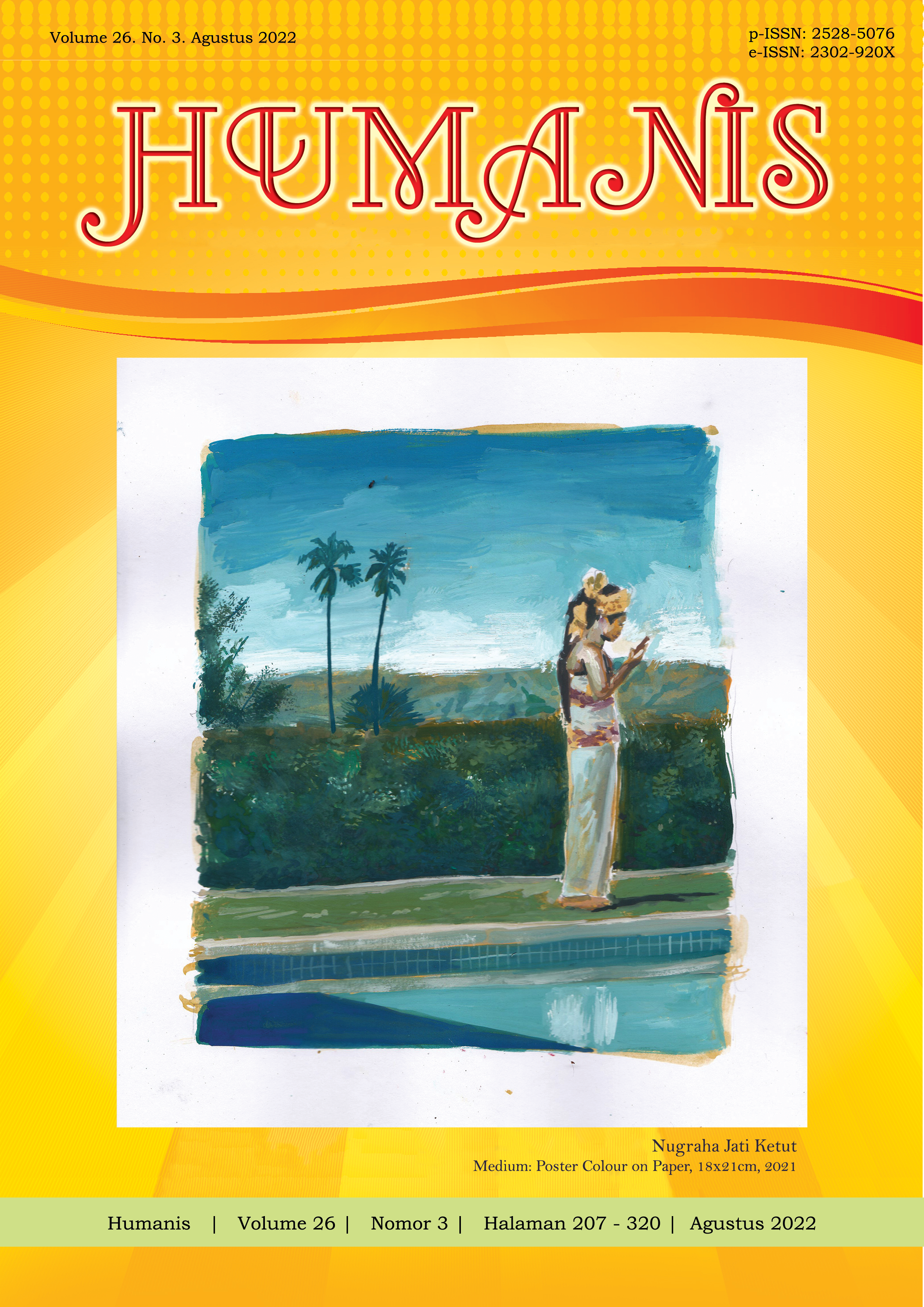Kajian Bioarkeologi: Osteobiografi Temuan R.PNY (PULAKI) di Situs Pulaki, Kecamatan Gerokgak, Kabupaten Buleleng
Abstract
Bioarchaeology is the science that covers the relationship between bioanthropology and archaeology to reconstructing biological and cultural processes in the past. The study focuses on skeletal components of R.PNY (PULAKI) on Pulaki Site that aim to learn information about human osteobigraphy. In this study, authors use methods of data-collection of library studies, obsevations, and interviews. Data is then treated using macroscopic analysis, microscopic analysis, anthropogenic analysis, anthropometrics analysis and comparative analysis. Forensic theory is used to assist in the process of analysis. By the process of identification it is known that the R.PNY (PULAKI) skeleton has an unidentified gender of about 6-12 years of age with a height of 125.102 cm ± 10 cm by length of bone. In addition, there are indications of pathology and bone modification such as dental hypoplasia, caries occlusal, bone fracture, bone modification by physical agents, and bone modification by nonhuman biological agents.
Downloads
References
Aziz, F.A. (2000). “Potensi Beberapa Situs Permukiman Arkeologi dalam Perencanaan Pengembangan Wisata di Kawasan Bali Barat: Suatu Sumbangan Pemikiran”. Jurnal AMERTA. Volume 20 (1), halaman 76-94.
Bawono, R.A. Najib, U., Kristiawan. (2008). “Mesolithic and Neolithic Cultures of Jimbaran, Bali”, Indo-Pacific Prehistory Association Bulletin Volume 28, hlm. 117-119.
Glinka, J., Artaria, M.D., Koesbardiati, T. (2008). Metode Pengukuran Manusia. Surabaya: Airlangga University Press.
Indriati, E. (2001). “Bioarkeologi: Integrasi Dinamis Antara Antropologi Biologis dan Arkeologi”. Humaniora. Volume XIII, No. 3, halaman 284-291.
Indriati, E. (2010). Antropologi Forensik. Yogyakarta: Gadjah Mada University Press.
Iscan, M.Y., dan Halmer, R.P. (1993). Forensic Analysis of the Skull. New York: Wiley-Liss.
Mahaviranata, P. (2000). “Ekskavasi Situs Pulaki, Kecamatan Gerokgak, Kabupaten Buleleng, Bali”. Berita Penelitian Arkeologi No.3. Badan Riset dan Inovasi Nasional Kantor Balai Arkeologi Bali.
Mays, S. (1998). The Archaeology of Human Bones. USA dan Canada: Routlege.
Ortner, D.J. (2003). Identification of Pathological Conditions in Human Skeletal Remains. USA: Academic Press.
Prayudi, A., dan Suriyanto, R.A. (2017). “Osteobigrafi Individu Nomor 38 dari Situs Prasejarah Gilimanuk”. Jurnal AMERTA. Volume 35, No. 1, halaman 1-74.
Prayudi, A., dan Suriyanto, R.A. (2018). “GLM LVI: Tinjauan Osteoarkeologis Atas Sebuah Rangka dari Gilimanuk”. Forum Arkeologi. Vol. 31, Nomor 2, Halaman 105-116.
Pinhasi, R. dan Mays, S. (2008). Advances in Human Palaeopathology. England: British Library.
Roberts, C., dan Manchester, K. (2005). The Archeology of Disease. United Kingdom: Sutton Publishing.
Soejono, R.P. (1984). Sejarah Nasional Indonesia I. Jakarta: Balai Pustaka.
Stodder, A.L.W. dan Palkovich, A.M. (2012). Osteobiography and Bioarchaeology. Dalam: A.L.W. Stodder and A.M.
Palkovich (editor). In The Bioarchaeology of Individuals., halaman. 1-8. Gainesville: University Press of Florida.
Suastika, I.M. (2008). “Traces of Human Lifestyle from the palaeolithic era to the beginning of the first century AD”, dalam: Hauser-Schӓublin, Brigitta dan I Wayan Ardika (Editor), Burials, Texts and Rituals ethnoarchaeological investigations in North Bali, Indonesia, hal.158-175. Gӧttingen: Universitӓtsverlag Gӧttingen.
Ubelaker. D.H. (1979). “Skeletal Evidence for Kneeling in Prehistoric Ecuador”. American Journal of Biological Anthropology. Volume 51, Nomor 4, halaman 679-685.
Waldron, T. (2008). Palaeopathology. New York: Cambrige University Press.
White, T.D. dan Folkens, P.A. 2005. The Human Bone Manual. USA: Elsevier, Inc.


















